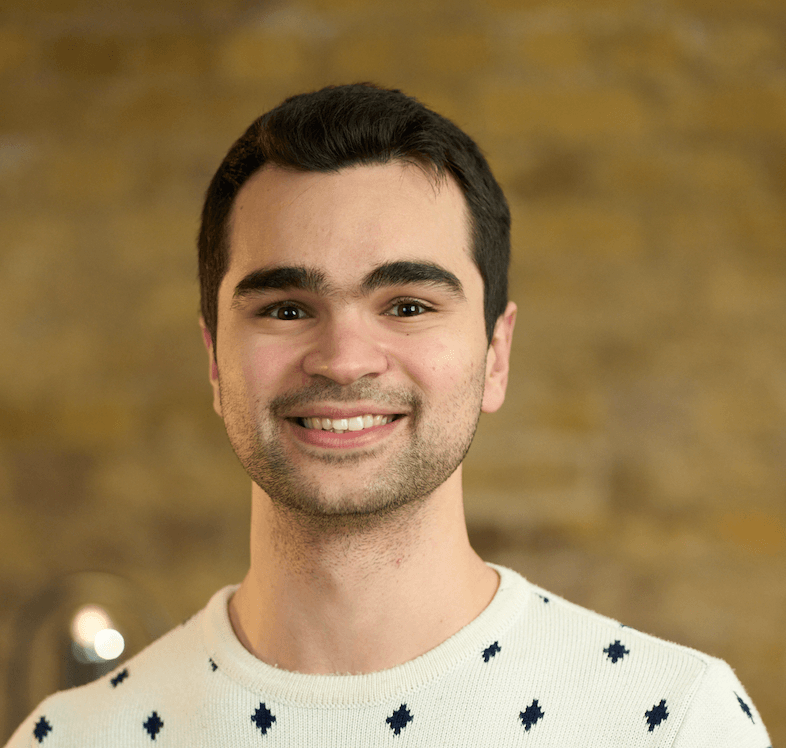

Co-Founder & CTO at Nativ
Ahmed Ahres
Hi! I'm Ahmed, I grew up in Tunisia playing professional Tennis. At age 16, I graduated high school and went to study Computer Science. I learned to code by building and shipping games on mobile & web. At age 20, I was hired as the first technical intern at Revolut in the Computer Vision team. During my time there, I built and shipped the selfie authentication feature to protect millions of customers from fraudsters using face recognition. This led to dropping out of school and continuing full-time as the youngest employee at Revolut! I've been working in AI/ML for the past 5 years and currently building my dream company with my dream co-founder: Nativ
Questions & Answers
Can you share a distinctive achievement or highlight from your career?
One of the largest problems we faced at Revolut in 2019 was fraudsters accessing people's Revolut accounts and stealing their money using their email and PIN. I was responsible for building and deploying an authentication feature using face recognition. Built it and shipped it at age 20 during my internship -- used by 100,000+ people worldwide, and saved hundreds of thousands of dollars from fraudsters! This led to my full-time offer which led to me dropping out of school at starting my career at today's largest European startup!
What sets you apart from others in your industry?
My energy and enthusiasm is definitely what sets me apart. I'm truly passionate about what I do, and this is directly reflected during the first seconds someone encounters me. I was even able to jump on sales call earlier in my career and sell just based out of enthusiasm. A prospect once told me: "Seeing how much you like it and believe in it, we want to do a trial". I ended up converting this customers into a paid one. This has been incredibly helpful throughout my career, and will be key for hiring incredible talent and convincing customers to buy Nativ!
How is your team uniquely positioned to solve the problem you're tackling?
At Revolut, we've built computer vision systems that have onboarded more than 20M customers from 40+ countries. We've seen firsth and the impact of going global there, and that was one of the best decisions Revolut made to become what is. On top of this, we’ve had the chance to live in Tunisia, India, Switzerland, Germany, The Netherlands, Belgium and the UK. Each country has added a new layer to our understanding of how culture shapes our digital experiences. The combination of professional and personal history with this problem drives us every single day.
Why are you excited about your company/product?
Growing up in Tunisia, I experienced firsthand what it was like to not have access to the content and opportunities that my friends in Europe and the US had. When asking businesses about this, the answer is almost always: "Arabic is hard, we don't know anyone there and we don't know how to go about it". But what if it was one click away to go global for any business? For the first time in history, we have access to a technology (Gen AI) that truly understands cultural nuances. We can finally solve this problem at scale.
What's a memorable 'aha' moment you've had while building your startup?
Early on during the ideation phase, I read this article about Mass Effect getting banned in Saudi Arabia in 2007 because the game had nudity scenes. Out of curiosity, I went on Youtube, took a screenshot of that scene and uploaded it to GPT-4 asking about what would happen if this was released globally. The answer was that this would not be accepted in countries such as Saudi and the entire middle east due to nudity. At that point, I realized that we finally had access to a technology that understands these cultural nuances and that this was revolutionary yet overlooked.
What's the story behind your company?
I always wanted start a company with Ashish. I tried convincing him in 2021 but the timing was just not right. In 2024, I joined his team in an AR startup in London. My goal was never to work there, it was to convince him to leave! So 3 months in, we started testing ideas out. We went back to everything we worked on at Revolut and our personal journeys. Content culturalization was one of those things that just felt right, so we spoke to more than 100 people in the space. Once we built enough conviction on this problem, we just left and started going after our dream!